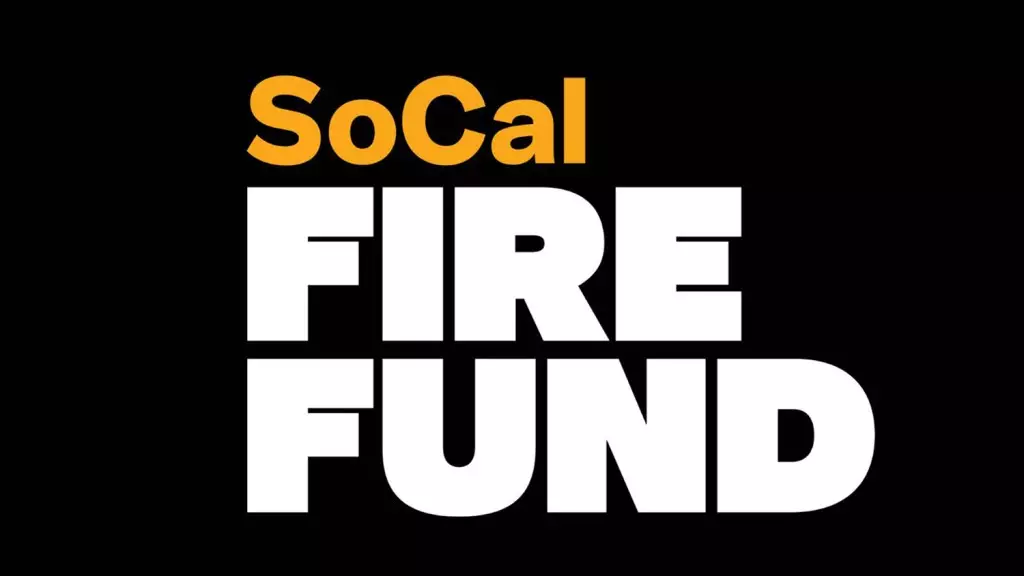In January 2025, Southern California faced a harrowing ordeal as wildfires raged, fueled by relentless winds and dry conditions. The devastation left in the wake of these fires was not merely a physical loss; it was a societal upheaval that affected countless families and communities across the region. Yet, amid this heartbreak, a response rooted in solidarity and resilience has emerged from the heart of the entertainment industry. Recognizing its unique position to effect change, leading figures in this sector have mobilized their resources to establish the SoCal Fire Fund, aimed at delivering essential support to those impacted.
Central to this initiative is the collaboration between the CAA Foundation, CORE, and the Los Angeles Unified School District Education Foundation. This coalition has come together not just to raise money, but to create a comprehensive support system that addresses both immediate needs and long-term recovery for affected communities. This multi-faceted approach seeks to leverage the strengths of each partner to maximize impact. Through their combined efforts, the fund has been designed to not only aid in the rebuilding of physical structures but also to restore community morale and provide a pathway for real recovery.
Natalie Tran, the Executive Director of the CAA Foundation, highlights the necessity for a robust and flexible response to the overwhelming losses faced by communities. The underlying aim is to mobilize resources that can adapt to the evolving situation, ensuring that vulnerable populations receive the critical support they require. This illustrates a vital understanding: recovery is not just about material assistance; it’s about empowering people and fostering resilience within communities.
A Unified Front Against Displacement
The coalition spearheading the SoCal Fire Fund shares a vision characterized by empowerment and adaptability. In these times of unprecedented challenge, a collective response is crucial. Although many employees from agencies and studios have been personally affected by the fires, the sincere commitment to rebuilding is palpable. The fund will serve as a lifeline for those who have lost their homes, providing much-needed financial assistance to navigate the immediate aftermath of displacement.
The involvement of CORE, led by Co-Founder and CEO Ann Lee, introduces a community-based approach to ensure that the support is not only expansive but deeply rooted in local needs. By engaging case managers throughout Los Angeles County, CORE aims to forge long-term relationships with affected individuals and families, which are pivotal for sustained recovery efforts. This localized focus distinguishes the initiative, allowing it to address specific challenges faced by those impacted by the fires.
To enhance the fund’s reach and efficacy, the coalition is actively seeking additional partners. The Los Angeles Unified School District, under the guidance of Superintendent Alberto M. Carvalho, plays a crucial role as a connector between various stakeholders. By utilizing public-private partnerships, the LAUSD can mobilize resources efficiently to ensure that both students and school employees receive targeted assistance during this tumultuous time.
The collaboration with neighboring educational foundations underscores the recognition of schools as central community hubs. Public schools are not merely educational institutions; they are platforms for connection and support, especially in crisis situations. The LAUSD’s commitment to coordinate efforts with the Education Foundation and other districts signals a broader understanding that healing begins at the community level.
The SoCal Fire Fund represents more than just an immediate response to a crisis; it is a blueprint for how communities can come together in adversity. This initiative embodies the spirit of unity and collaboration that characterizes Los Angeles. As the long journey of recovery begins, the concerted efforts of the entertainment industry, community organizations, and educational institutions provide a foundation on which to build not just for today, but for the future.
In a time of loss, these collective actions promise a renewed resilience, ensuring that communities will not only recover but emerge stronger than before. The path ahead may be fraught with challenges, but the commitment to support and empower the most vulnerable speaks to the heart of human solidarity. Together, the people of Southern California are not merely reacting to catastrophe; they are crafting a narrative of responsiveness and strength that will echo well beyond the flames of January 2025.

